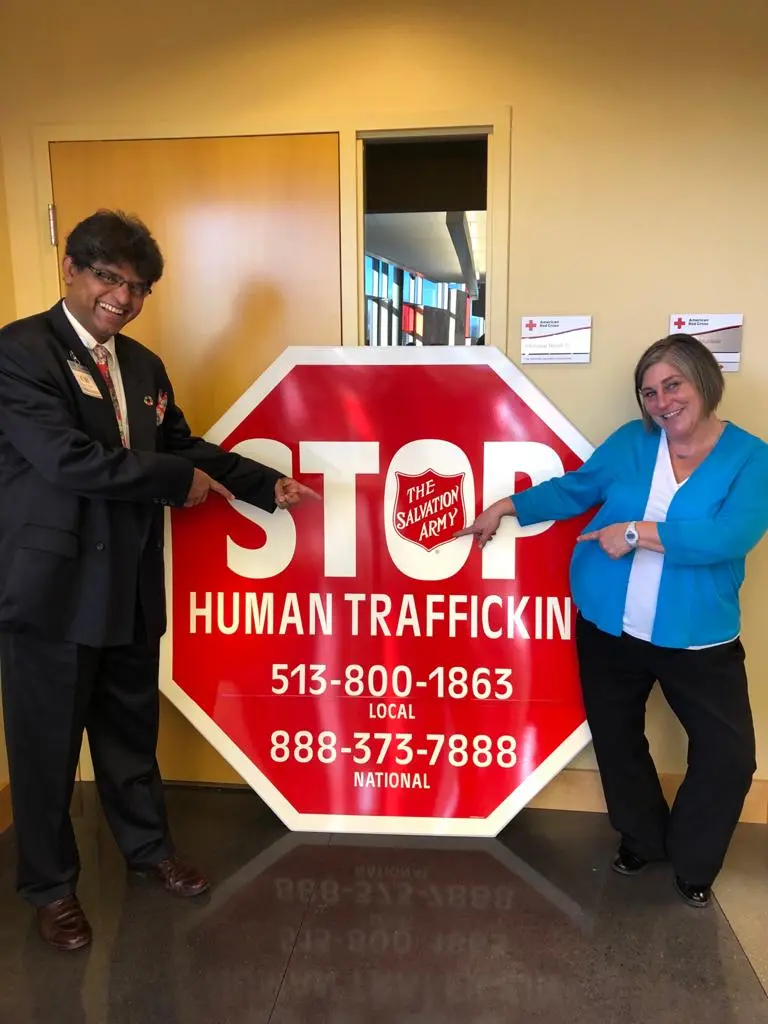Harold D’Souza’s journey from a survivor of human trafficking to a prominent advocate and advisor on human rights issues serves as a powerful testament to resilience and transformation. His life’s work, focused on preventing exploitation and empowering victims, is an inspiration to immigrant communities worldwide.
A Survivor’s Story: Overcoming Exploitation and Forced Labour
Harold D’Souza, an immigrant from India, initially arrived in the United States with dreams of a better life. However, he quickly fell victim to human trafficking, enduring forced labour and exploitation under challenging circumstances. The experience of being trapped and exploited as an immigrant worker left a lasting impact on Harold, inspiring his later commitment to advocating for others at risk.
Through his journey of survival, Harold learned firsthand about the vulnerabilities and dangers facing immigrants. His experience became the foundation for his advocacy, giving him a unique and powerful voice in the fight against human trafficking.

Founding Eyes Open International: A Mission to Protect and Empower
In response to his experiences, Harold established Eyes Open International, a non-profit dedicated to combating human trafficking and supporting survivors. The organisation’s mission is to raise awareness, provide resources, and empower victims to rebuild their lives. Eyes Open International places a special focus on vulnerable immigrant communities, educating them about the risks of trafficking and how to seek help.
Through seminars, training sessions, and outreach programs, Eyes Open International serves as a bridge for survivors, offering them a path to healing and a network of support. Under Harold’s leadership, the organisation also works to educate policymakers and community leaders on the importance of immigrant protections, aiming to prevent exploitation before it begins.
Serving on the U.S. Advisory Council on Human Trafficking
Harold’s efforts to combat human trafficking were recognised at the highest levels of government, and he was appointed to the U.S. Advisory Council on Human Trafficking. In this role, Harold brought a survivor’s perspective to discussions on policy and reform, working to shape strategies that would better protect vulnerable populations.
Under the Trump administration, Harold was able to contribute to initiatives focused on anti-trafficking, such as the “Survivors to Thrive” program, which aimed to support survivors’ transition back into society. Despite mixed feelings within the immigrant community about Trump’s broader immigration policies, Harold appreciated the administration’s commitment to combating trafficking, finding common ground in this shared goal of protecting human rights.
Advocacy Across Political Lines: A Bipartisan Mission
Harold’s work on the advisory council reinforced his belief in the need for bipartisan collaboration in the fight against human trafficking. By working with leaders from across the political spectrum, Harold was able to advocate for policies that would address trafficking on multiple fronts—preventing exploitation, supporting survivors, and holding perpetrators accountable.
He views this bipartisan approach as essential to creating real change, transcending political divides in favour of shared humanitarian goals. For Harold, combating trafficking is a mission that demands a unified effort, and he believes that survivor voices should play a central role in policy-making decisions.
Finding Common Ground in Trump’s Anti-Trafficking Efforts
Although Trump’s immigration policies raised concerns among immigrants, Harold found aspects of the administration’s stance on human trafficking inspiring. He appreciated Trump’s commitment to addressing trafficking and his administration’s efforts to bring attention to the issue. Harold’s experience working with the Trump administration on anti-trafficking initiatives gave him a unique insight into the impact that focused leadership can have in addressing human rights issues.
Through his role, Harold witnessed the value of collaboration in tackling global issues, noting that effective leadership on such matters requires empathy and an understanding of the diverse backgrounds of those affected. His personal connection to the cause allowed him to contribute meaningfully, driving home the importance of representation and diverse voices in policymaking.

Ongoing Advocacy: Spreading Awareness and Inspiring Change
Today, Harold continues his mission through Eyes Open International, focusing on awareness and education. He works tirelessly to reach communities at risk, holding workshops to educate people about the tactics used by traffickers, especially within immigrant populations. His efforts aim to prevent others from enduring the trauma he experienced, while also offering a support network for those who have survived trafficking.
Harold’s story underscores the potential of resilience and advocacy in creating meaningful change. By turning his own hardships into a powerful mission, he has become an inspiration to others, showing that even the most challenging experiences can lead to positive impact. Through his work, Harold D’Souza serves as a beacon of hope, dedicated to the cause of human rights and driven by the belief that every person deserves dignity and protection.
The Lasting Impact: A Legacy of Empowerment and Justice
Harold D’Souza’s journey from a trafficked worker to a respected human rights advocate is a testament to the strength of the human spirit. His dedication to eradicating human trafficking and supporting survivors has transformed his personal struggles into a broader mission for social justice. By founding Eyes Open International and serving on the U.S. Advisory Council, Harold has paved the way for a more compassionate approach to immigration and human rights.
His advocacy reminds us that resilience and compassion can drive significant change, inspiring others to stand up for those who cannot yet stand up for themselves. Harold’s work will leave a lasting legacy of empowerment and justice, encouraging immigrants and vulnerable populations to dream of a life free from exploitation.
